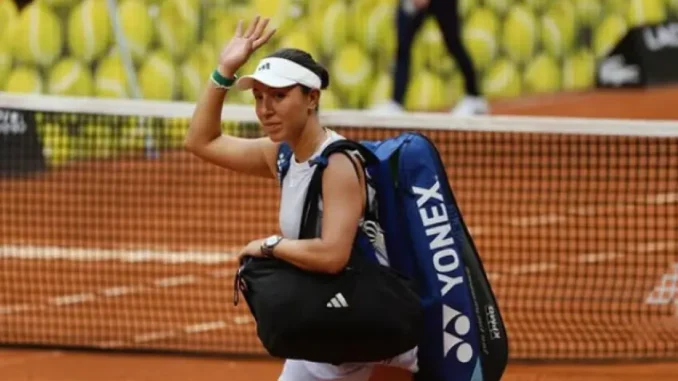
As the red clay courts of Rome’s Foro Italico prepare to host the 2025 Internazionali BNL d’Italia, Jessica Pegula, the world No. 7, has stepped into the spotlight not just for her tennis but for her spirited defense of Carlos Alcaraz. On May 8, 2025, the American star addressed the buzz surrounding Alcaraz’s Netflix docuseries, Carlos Alcaraz: My Way, which premiered on April 23. The series, chronicling the 22-year-old Spaniard’s 2024 season, has sparked debate over his unconventional approach to balancing stardom with a youthful desire for freedom. Pegula’s comments, delivered with conviction, underscore the human side of a tennis prodigy navigating fame, pressure, and personal joy.
The three-part docuseries offers an intimate look at Alcaraz’s life, from his triumphs at Roland Garros and Wimbledon to candid moments of vulnerability. A focal point of controversy has been Alcaraz’s spontaneous trips to Ibiza, first after a 2023 French Open semifinal loss to Novak Djokovic and again before his 2024 Wimbledon title defense. “In Ibiza… I’m not going to lie to you. It’s partying and going out. I went there to have a blast,” Alcaraz confessed in the series, admitting he defied his team’s disapproval to unwind. While some critics, including coach Juan Carlos Ferrero, questioned his commitment—Ferrero noted, “If you go to Ibiza for six days and go out every day, you have done everything but rest”—Pegula sees it differently. “Even though he is a big star, he experiences real-life things, just like all of us,” she told reporters in Rome. “Sometimes I think it’s very good for fans and other people to see the human side of athletes. We are not robots. It doesn’t matter how many Grand Slams you have.”
Pegula’s defense highlights Alcaraz’s struggle to reconcile his ambition to be “the best athlete in history” with his need for normalcy. The series captures him at home in Murcia, sleeping in a twin-sized bed and cherishing meals with his family, a stark contrast to his $40 million in prize money. “I come here after every tournament. This is my quiet place,” Alcaraz said, emphasizing his love for his parents’ home. His mother, Virginia Garfia Escandon, emerges as a pillar, prioritizing his happiness over relentless success. Pegula, who has faced her own pressures as a top player, resonates with this narrative. Her words echo a broader call for empathy in a sport that often demands robotic perfection, especially for young stars like Alcaraz, who admitted, “I don’t want to feel like a slave to tennis.”
Both players are in Rome, battling recent injuries. Alcaraz, fresh off an adductor issue that forced his Madrid Open withdrawal, faces Dusan Lajovic on May 9, aiming to improve on his 2023 third-round exit. Pegula, recovering from a third-round Madrid loss, takes on Ashlyn Krueger a day earlier. Their paths could intersect later, with Pegula potentially facing Swiatek or Ostapenko in the semifinals, while Alcaraz eyes a ranking boost to overtake Alexander Zverev. Off the court, their camaraderie shines, from a playful cupcake incident at the 2024 Garden Cup to a gift-wrapping challenge where Alcaraz quipped, “I wouldn’t give this sh-t to anyone,” while Pegula’s neat wrapping earned praise.
The documentary, directed by Jorge Laplace, has stirred mixed reactions. Fans on X laud Alcaraz’s candor, with one noting, “Let Alcaraz party and enjoy his tennis if that’s what he needs to produce genius.” Critics, however, like former No. 9 Nicolas Almagro, argue he lacks the discipline of Djokovic or Nadal. Pegula’s stance cuts through the noise, reminding fans that Alcaraz’s four Grand Slams at 22 don’t erase his humanity. As Rome’s clay tests their resilience, her words resonate: athletes, even champions, are not machines. Alcaraz’s journey—partying in Ibiza, winning Wimbledon, or chasing history—proves he’s forging his path, flaws and all.
Leave a Reply